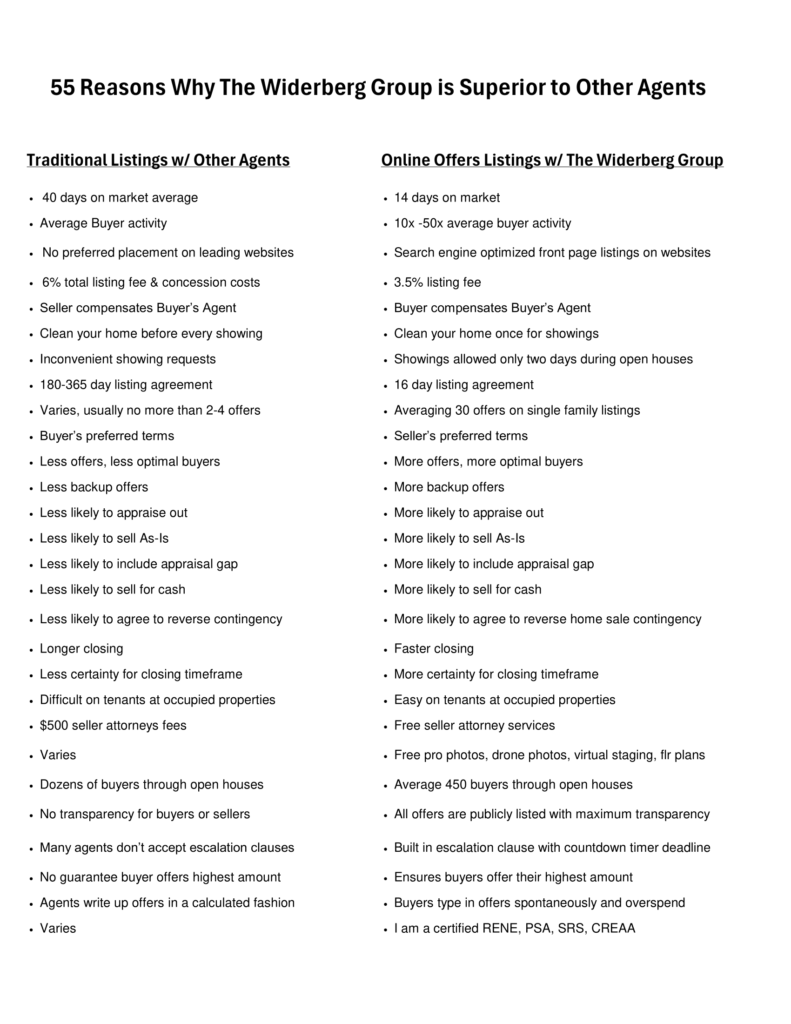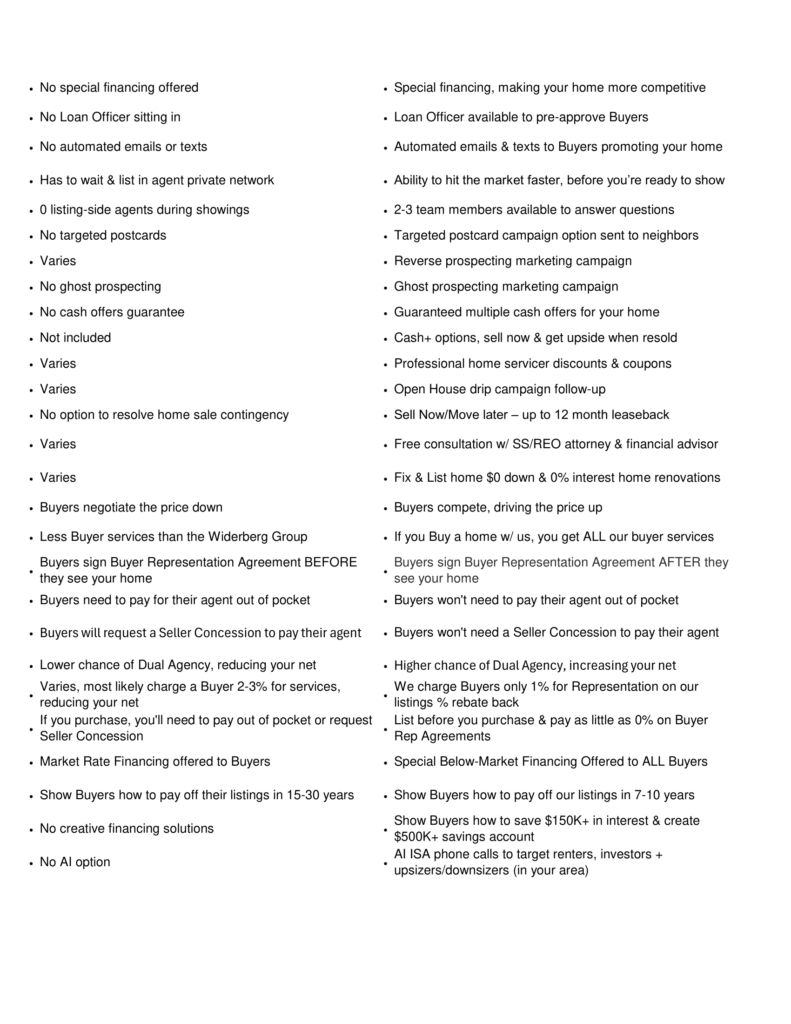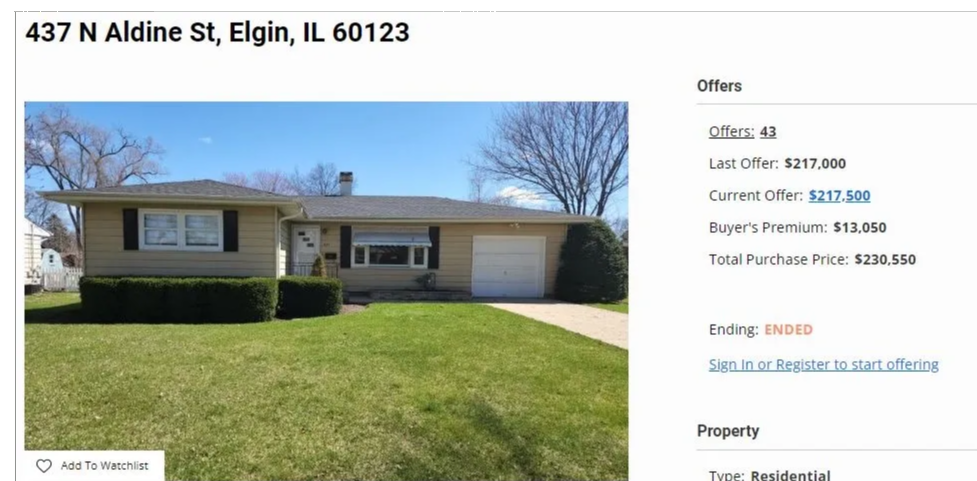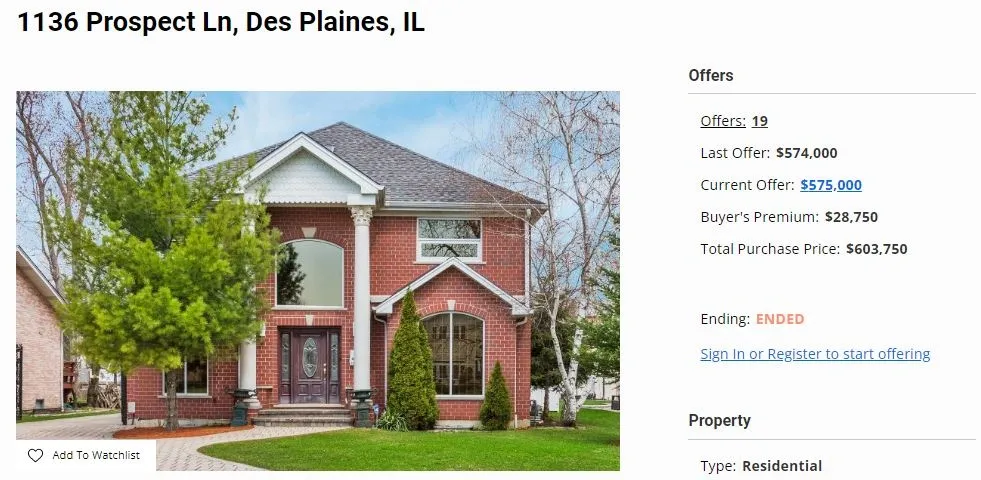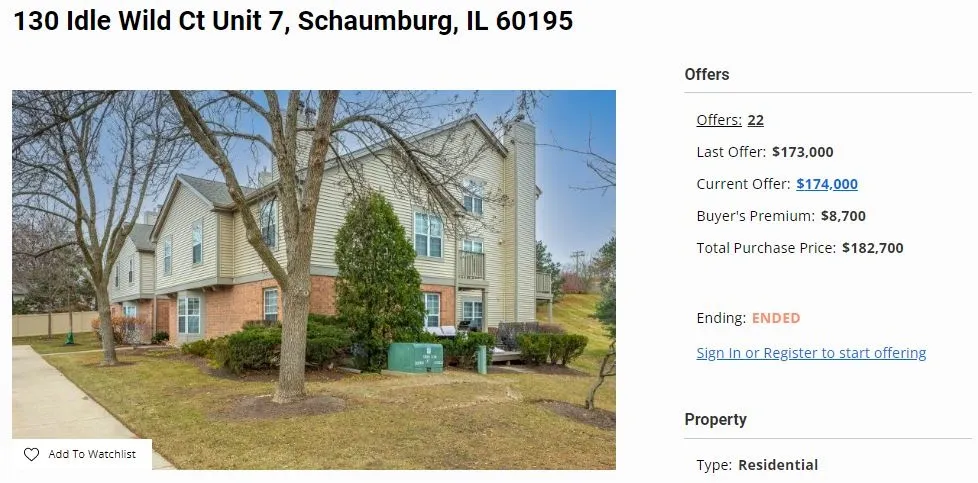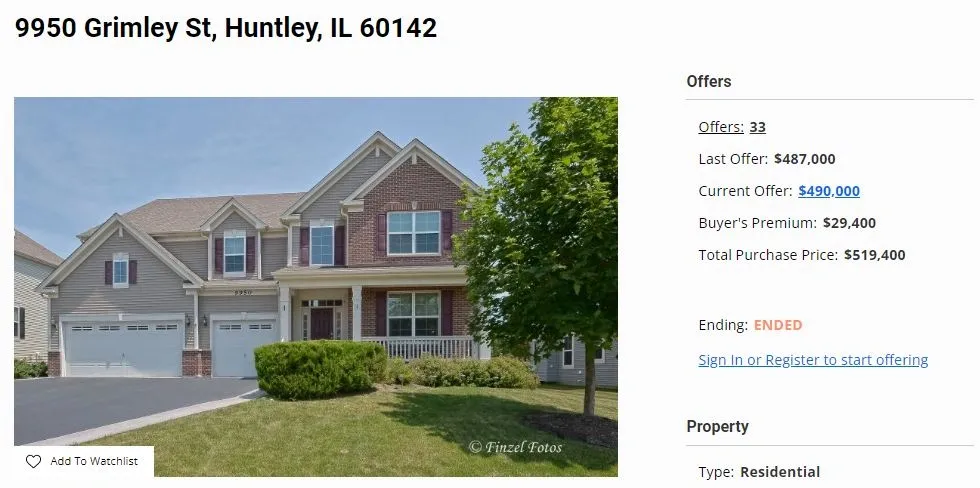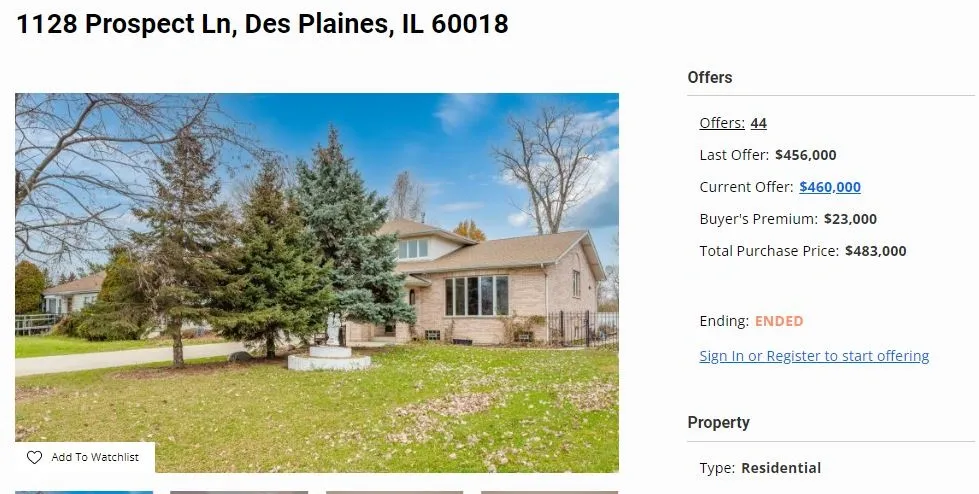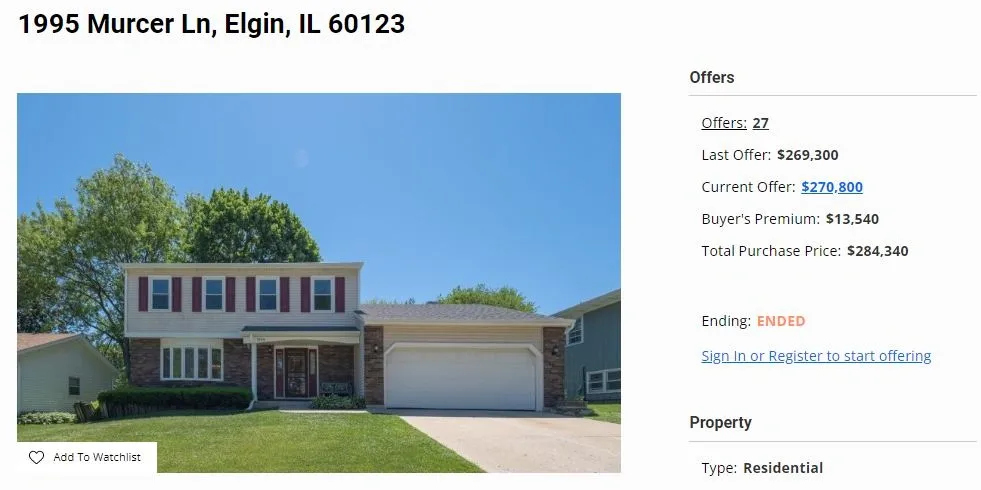Navigating Foreclosure Sales and Short Sales:
As an accredited Short Sale and Foreclosure Representative (SFR), I understand how deeply personal the prospect of losing a house can feel. While it can be an emotional rollercoaster, it’s important to align yourself with experienced professionals. My preferred real estate attorney Justin Abdilla and I work together as a team and share a foreclosure assistance group that can guide you through the process with as little pain as possible, and answer any questions you may have. Our contact information is in the description below.
If you find yourself in a position where you’ve missed between 1-4 months of mortgage payments, and anticipate your property will be going into foreclosure, please give us a call as soon as possible. Addressing your situation promptly could end up saving you thousands of dollars in attorneys fees and hundreds of dollars in payments, interest, and taxes every day you wait to reach out. The average legal cost to a homeowner going through foreclosure is $7,500 according to the U.S Congress Joint Economic Committee. The lengthy foreclosure process can even lead to bankruptcy.
If you’re in a situation where the home is currently worth less than what’s owed on the mortgage, your home is considered upside down or underwater. If you wait too long to address the reality of your situation, it will be far costlier financially and credit-wise than if you act proactively. The good news is that in lieu of foreclosure, banks will often settle for a short sale, which means they’ll accept less on the future sale of the home than what was loaned to you when you bought the home. Agreeing to a short sale will leave both you and the lender in a better overall position. As to avoid the lengthy process of litigation towards a judgment, lenders are less likely to sue for a deficiency judgment, especially if a homeowner can prove hardship, such as divorce or loss of income against the homeowner. A Short sale will protect your credit, and may only blemish it for a few years, as opposed to a foreclosure which may take up to seven years for your credit to fully heal. Once your credit receives a mark against it like a foreclosure, it can be nearly impossible to borrow money for a future home, car, or major purchase. Also, a bank will be more likely to file a deficiency judgment against a homeowner in foreclosure than a homeowner who agrees to short-sell. Additionally, the lender is also less likely to sue a homeowner who has agreed to short-sell as opposed to going through the foreclosure process.
If your foreclosure never goes to court, my preferred attorney Justin Abdilla will only charge a Seller $500 for his attorney services. If it goes to court once, he charges $750, and $2,000 if it ends up with the Judge. However, if you decide to sell the home before requiring short sale approval, he will charge $0 attorney fees. This is one example of many why it’s important to tackle the financial hardships you’re dealing with on your mortgage payment as promptly as possible.
As an accredited Foreclosure and Short Sale Representative (FSR), I can guide you through the sales process on your property. Please contact me as soon as possible.
The Three Rounds of Negotiations – Most financed real estate transactions are made up of three rounds of negotiation. The first round of negotiation in most real estate transactions consists of an offer made on a multi-board contract for purchase with relevant terms including your purchase price, any Seller concessions requested, earnest money offered, financing type, down payment and interest rate percentages, closing date, inspection, and attorney review period, mortgage contingency date, tax proration percentage, whether or not your purchase is contingent upon the sale or close of another property, whether you agree to purchase as-is, request a home warranty, termite inspection or well and septic inspection from Sellers, option for the Sellers to leaseback, appraisal gap agreements, as well as several other more unusual requests. While these terms can seem complicated for Sellers, I’ll make sure to fully guide you through the process and answer every question you have. I will go over each of these terms in greater detail.
When writing up an offer in a competitive, Seller market there are a few terms Buyer agents alter for their offers to stand out above all others, especially for less desirable financing types to Sellers like FHA or VA loans.
During less competitive markets, Buyers have a better chance to win offers including Seller concessions. These funds can be used for the Buyer’s closing costs or simply be used as cash to furnish the property post-purchase. Earnest money is included in every real estate offer and is generally anywhere between 1% – 10% of the home’s purchase price and is to be delivered between 2 and 3 business days in the form of a cashier’s check or money order. These funds are usually held in an escrow account by either the Buyer or Seller’s real estate office, an attorney affiliated with the transaction, or the title company. Ultimately, the earnest money is applied toward a Buyer’s down payment amount at closing. In the event a Buyer chooses to cancel their real estate contract within the attorney review and inspection period, their earnest money will be refunded, however, if a Buyer breaks the terms of the contract and cancels after the attorney review and inspection period expires, they may risk losing their earnest money due to a breach of contract. The mortgage contingency date is the timeframe it takes a Homebuyer to secure a mortgage loan for a home. If the loan cannot be secured, the Buyer can walk away without legal repercussions and have their earnest money deposit returned.
While my preferred lender can close in as little as 10 days, conventional offers for purchase with Mortgage Bankers at banks or credit unions generally take around 30 days, while FHA and VA offers are 45 days on average. The standard attorney review and inspection contingency is five business days (not including Saturdays or Sundays), however, this period can be altered upon writing an offer. Generally speaking, property taxes are raised by roughly 5% annually. Because taxes are paid in arrears, we can assume they will be roughly 5% higher than the previous year’s tax bill. At the closing table, Sellers usually credit Buyers between 100%-110% of the current year’s tax amount to account for this increase.
In competitive, Seller markets, it is unlikely that a Seller will accept an offer made by a Buyer with a home sales contingency, which means that the Buyer has yet to receive a purchase contract on the current home they are required to close on before purchasing something new. If you plan on purchasing a property, yet have to close on your current home to close on a new one, it is much more likely to have a Seller accept your offer with a home close contingency, which means the home you have to close on before purchasing a new home is already under contract with a Buyer but has yet to close. The Seller of your new property is agreeing to take a risk with your offer, even though it is contingent on another party’s real estate transaction. In ultra-competitive markets where properties receive multiple offers, it is unlikely a Seller will accept an offer with a home sale or home close contingency, however, there are some strategies you can use to win in these types of scenarios. Buyers can even offer Sellers the option to lease back their home for an agreed-upon rental amount, which can certainly sway a Seller’s decision if their moving time frame doesn’t quite align with the market average of 30-45 days.
In less competitive Buyer’s markets, sometimes Buyers request Home Warranties paid for by Sellers. These policies cost between $400 – $1000 and generally last between 12 to 18 months after closing and warrant a range of things inside the home for that period, including appliances, mechanicals, plumbing, electrical and other fixtures within the home. Here is a home warranty partner company I recommend: America’s Preferred Home Warranty
The second round of negotiations in most real estate transactions comes after a Buyer conducts their inspections on the property. Inspections they may want to conduct during this period include a professional home inspection, radon, sewer, well, and septic inspections, termite, roof, mold, and asbestos inspections, or anything else they’re concerned about before closing. Most professional home inspections are between $300 – $700 and generally include a home inspection report of between 50 and 200 pages, including every flaw the inspector could find with the property. Once this report is received, Buyers have the option to request Sellers fix these issues, issue a credit for the issues, or a combination of repairs and credits. This is the second round of negotiations. As-Is transactions are considered more competitive offers because they essentially in theory eliminate this round of negotiations. Additionally, if you plan on having anyone sleep in a basement space, radon inspections are encouraged. If results come back too high, Buyers can request the Sellers install a radon remediation system. I find that most Sellers will agree to this because alternatively they’ll be required by law to disclose high radon levels to any future Buyers within their radon disclosure. If the building has older pipes, you may want to have a plumber do a sewer scope to ensure there are no problematic clogs. If a home inspector finds what appears to be mold, you can hire a mold remediation expert to test the area to determine whether it is in fact mold, and request the Sellers pay for remediation before closing. While these inspections are generally conducted within 5 business days of an accepted contract, extensions are usually granted and agreed upon by real estate attorneys. If there are any terms in the real estate contract that the Buyer or Seller requests be changed, this is best done during this 5 business day attorney review window. An amendment is sent out between attorneys and is signed by both Buyer and Seller’s attorneys to conclude this second round of negotiations.
The third round of negotiations in most real estate transactions is brought forth after the results of the property appraisal. A representative from the financial institution is sent to evaluate what they determine the free market value of the property is, usually based on comparative properties in the neighborhood. If the appraiser determines that the property is worth more than the contract price, it can be assumed that the purchaser has instant equity in the property. If the property appraises for the contract price, there is no problem, and no third round of negotiations, however, if a property appraises for less than the contract price, there is a problem that can be remedied in one of three ways. In less competitive Buyer markets, the Seller may agree to reduce the contract price to the appraised amount. In more competitive, Seller markets with multiple offers, the Seller may request that the Buyer brings the difference between the contract price and appraised amount to closing in the form of extra cash at closing. Lastly, the Buyer and Seller can negotiate this gap between the contract and appraisal amounts, each making concessions to pay for the difference. When it comes to financing types, cash is king, conventional is 2nd best, followed by VA and FHA loans. Cash offers don’t require appraisals and are considered more competitive offers because this third round of negotiations is never an issue. During ultra-competitive markets, Buyers will sometimes agree to appraisal gap agreements. Appraisal gap agreements are a great way to convince a Seller to agree to your offer with less ideal financing or less favorable contingencies, guaranteeing the Seller a certain amount above what the property appraises at, in the event of an appraisal issue, which gives a Seller more confidence in your ability to close the transactions.
Please give me a call with any questions about real estate contracts or associated terminology. I’d love to help you better understand how to win in a competitive real estate market.
Now That You’re Under Contract – Congratulations on your executed contract! Now that we’re officially under contract, you are one step closer to closing! Because both Buyer and Seller have signed this contract, we have officially begun the Attorney Review and Inspection period, which is generally a 5 business day period the Buyer is entitled to conduct any inspections they wish. While you are entitled to use any attorney of your choosing, I highly recommend you use one who specializes in real estate. Most sell-side attorneys charge around $400-$650. The good news is that my preferred attorney offers FREE Attorney Services to Illinois Sellers! His contact information is listed below. Please let me know which attorney you’ll be using for your transaction so I can immediately email the executed contract to your preferred attorney. Now that we’re under contract, it’s best that you the attorney you plan on using, so you can discuss what their fees are.
The second round of negotiations in most real estate transactions comes after a Buyer conducts their inspections on a property. Inspections they may want to conduct during this period include a professional home inspection, radon, sewer, well & septic inspections, termite, roof, mold, and asbestos inspections, or anything else they may be concerned about before closing. Most professional home inspections include a home inspection report between 50 and 200 pages, including every flaw the inspector could find with the property. Once this report is received, Buyers have the option to request Sellers fix these issues, issue a credit for the issues, or request a combination of repairs and credits. This is the second round of negotiations. While these inspections are generally conducted within 5 business days of an accepted contract, extensions are usually granted and agreed upon by real estate attorneys. If there are any terms in the real estate contract that the Buyer or Seller requests be changed, this is best done during this 5 business day attorney review window. An amendment is sent out between attorneys and is signed by both Buyer and Seller’s attorneys to conclude this second round of negotiations.
If the Buyer and Seller do not come to terms with inspection requests or attorney review modifications, there is a possibility the Buyer may cancel the contract to avoid risking the loss of their earnest money.
Here are a few Real Estate Attorneys I recommend:
Justin Abdilla & Associates (FREE Seller Services)
650 Warrenville Rd. #100
Lisle IL 60532
Phone: 630-839-9195
Fax: 630-454-3530
www.abdillalaw.com
The Law Offices of James Nicodemus (Not FREE)
2700 Patriot Blvd., #250
Glenview, Illinois 60026
(847) 309-0254
Fax: (224) 616-3055
Website Address: https://www.jnicodemuslaw.com/
Now That Attorney Review is Closed – Congratulations, we have officially come to terms with the second round of negotiations in our real estate transaction and have closed out our attorney review and inspection period! At this time, we are most likely still waiting on the Buyers’ financing to be officially approved in what’s called a clear-to-close.
At this stage in our real estate transaction, we are most likely still awaiting the results of the appraisal. The third round of negotiations in most real estate transactions is brought forth after the results of the property appraisal. A representative from the financial institution is sent to evaluate what they determine the free market value of the property is, usually based on comparative properties in the neighborhood. If the appraiser determines that the property is worth more than the contract price, it can be assumed that the purchaser has instant equity in the property. If the property appraises for the contract price, there is no problem, and no third round of negotiations, however, if a property appraises for less than the contract price, there is a problem that can be remedied in one of three ways. In less competitive Buyer markets, the Seller may agree to reduce the contract price to the appraised amount. In more competitive, Seller markets with multiple offers, the Seller may request that the Buyer brings the difference between the contract price and appraised amount to closing in the form of extra cash at closing. Lastly, the Buyer and Seller can negotiate this gap between the contract and appraisal amounts, each making concessions to pay for the difference.
In the meantime, let’s cross our fingers the property appraises! While the Buyer’s mortgage broker is submitting the final figures to the underwriting department, it is not unusual for our anticipated closing date to be delayed slightly.
If you’ll be out of town or prefer not to attend your closing at the title company and pre-sign the documents instead, this can be done by signing a power of attorney with your real estate attorney, however, it’s best you notify your attorney no less than two weeks before the anticipated closing date so they can prepare the power of attorney and documents.
Now That We Have a Clear to Close – Congratulations! We have officially received a clear-to-close on the Buyer’s mortgage! Now that we are past all three rounds of negotiation for this transaction, all that’s left is to schedule a closing date with the title company. TRID regulations require a Buyer’s final mortgage closing disclosure to be delivered to them no less than 3 days before closing, which might push back your closing date. As long as a Buyer receives this final disclosure three days before our anticipated closing date, there should be no problem, however, ultimately both Buyer’s and Seller’s attorneys will have to agree upon a date they can sit down together at the title company to hash out the paperwork.
Either the day before or the day of closing, the Buyers will schedule a final walkthrough at the property. Please make sure you’re fully moved out of the property and leave any applicable appliance manuals, extra sets of keys, and remote garage transmitters on the kitchen counter for the Buyer. During the final walkthrough, the Buyer and their agent will ensure that all of the real property included in the contract is still inside the property, and will check to make sure any requested repairs have been completed. If there is any damage that’s been made to the property from moving out or any repairs that have not been completed, Buyers have the option to report these issues to their real estate attorney to pass on to your attorney. Usually overestimating the cost of the repairs, a Buyer’s attorney might request money be held back from Sellers in an escrow account until the requested repairs are completed by licensed professionals or instead request a credit from Sellers at the closing table. In the event Buyer and Sellers cannot come to terms on a mutually agreed solution, Buyers have the option to walk away at the closing table due to a breach of contract. Don’t worry. Your attorney and I will do our best to ensure a smooth closing. The closing should take between 1-3 hours.
Please fill out this Seller’s Questionnaire. I’m looking forward to working with you & selling your home for Top Dollar!





 4. Cash Offers
4. Cash Offers
